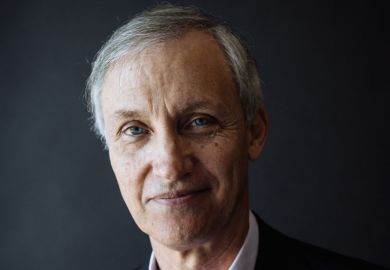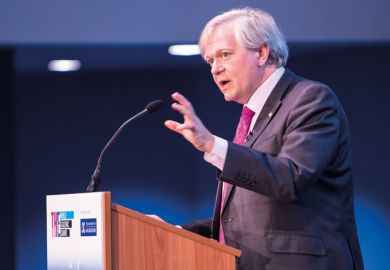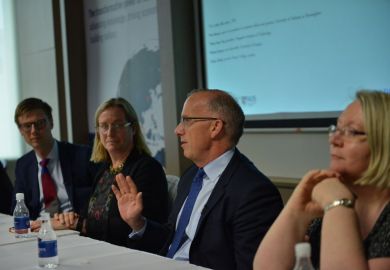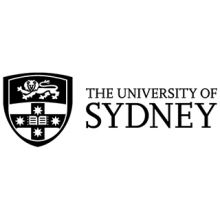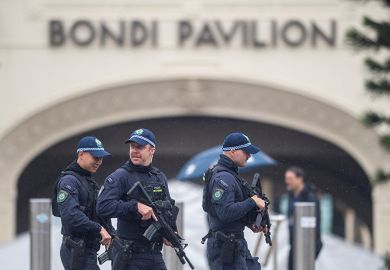The humanities and social sciences are under increasing financial pressure in Australian universities. So why would a university turn down financial support for a new course that came with generous student scholarships?
As has been widely reported, the privately funded, not-for-profit Ramsay Centre for Western Civilisation, established in 2007, is offering generous funding for new courses on Western civilisation in Australian universities, on an Oxbridge-style small-class basis. The programme has a “great books” focus and similarities to other courses in Australia and in the US. It would also have to be combined with an outside major and electives in other subjects.
But the centre’s board contains two former Liberal Party prime ministers, John Howard and Tony Abbott, and the programme is strongly supported by Rupert Murdoch’s newspapers, raising contention from ideological opponents. A piece by Abbott in the literary and cultural journal Quadrant critical of contemporary higher education antagonised the universities and stoked Australia’s ongoing culture war over its history.
The Ramsay board has sought interest among universities in New South Wales and Canberra. The Australian National University explored a proposal to fund a new BA, but discussions flip-flopped until the university formally rejected the proposal, amid opposition from some staff and students to the concept of a course focused exclusively on Western civilisation. Student association president Eleanor Kay, for instance, argued that talk of Western civilisation was a “rhetorical tool to continue the racist prioritisation of Western history over other cultures”.
The ANU’s chancellor, former Labor minister Gareth Evans, argued that the proposed course was unlikely to fulfil the needs of students or the university, and accused the centre of trying to micro-manage curriculum and staffing. He also underlined the importance of free speech on campus – which some saw as ironic given the intolerant attitude of the protesters to an alternative curricular approach. The Ramsay Centre has links to the Heterodox Academy, an advocate for “viewpoint diversity” on US campuses.
Critics at the University of Sydney are making similar points as the institution proceeds cautiously in its own discussions with the centre, while the University of Queensland’s National Tertiary Education Union branch publicly warned that a Ramsay-funded course would not be welcome there except under very strict conditions – although the university has submitted an expression of interest.
Teaching and research programmes supported by external funding are not unknown on Australian campuses. The China-funded Confucius Centres are plentiful, just as there are many Australia Centres in China. But Confucius Centres are also controversial, accused by critics of being instruments of Chinese government influence.
Nor is it unknown for universities to turn their noses up at external funding. In 2015, Bjorn Lomborg’s Copenhagen Consensus Centre wanted to set up an Australian operation. Lomborg believes climate change is real but overstated, and that scarce funds would be better spent on addressing other global threats. While several universities were interested, vocal opposition on campuses helped to ensure that no major university accepted.
But a wide breadth of offerings in the humanities and social sciences is crucial if students are not to desert these disciplines for the new pastures of digital technology as the fourth industrial revolution unfolds. Too much of the criticism of the Ramsay programme boxes these disciplines into particular contemporary theories and discourses. Sydney academics, for instance, argue that it devalues the non-West and needs to focus on Indigenous peoples’ struggles and the West’s pillaging of the world. Running a course based around such a contested concept, some have claimed, would make the university an “intellectual backwater”.
But the space in the Ramsay curriculum would allow students to study a range of other subjects that address those points, as well as acquire technical skills and build their professional networks.
Of course, academics are entitled to have their say on whose money their institutions accept. But universities should be and are places of multifarious viewpoints and interests. And the long-term durability of the humanities and social sciences relies on their being confident enough to insist on diversity in their curricular offerings – and to resist being painted into ideological corners.
Dean Forbes is an emeritus professor at Flinders University, Adelaide.
POSTSCRIPT:
Print headline: Education before ideology
Register to continue
Why register?
- Registration is free and only takes a moment
- Once registered, you can read 3 articles a month
- Sign up for our newsletter
Subscribe
Or subscribe for unlimited access to:
- Unlimited access to news, views, insights & reviews
- Digital editions
- Digital access to THE’s university and college rankings analysis
Already registered or a current subscriber?

